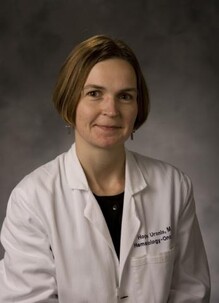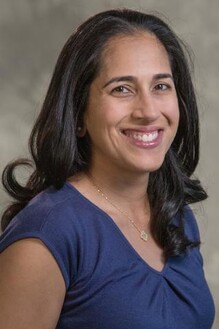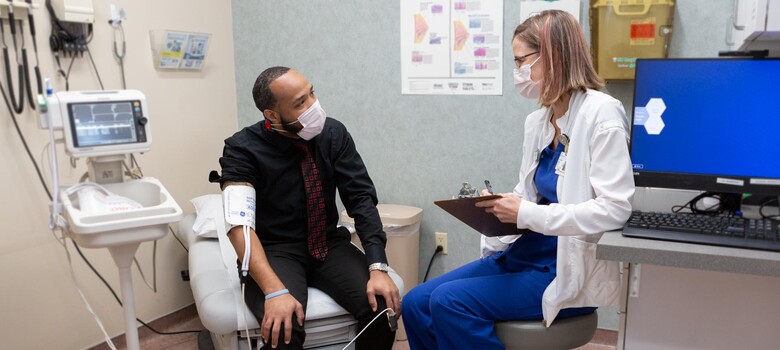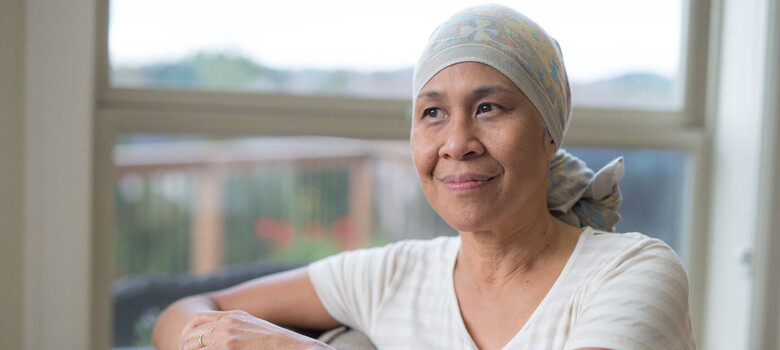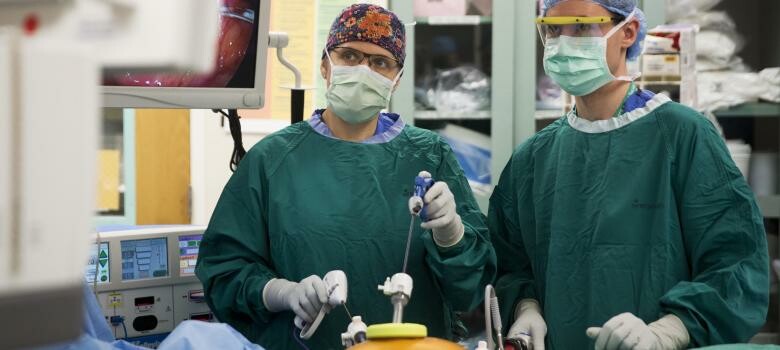Kidney Donor Evaluation Leads to Stomach Cancer Discovery
“Now I Have a Chance,” Jeff Stewart Said

Jeff Stewart smiles on a walking path near his home in Cary, NC.
Jeff Stewart wanted to donate his kidney because helping others is “the right thing to do,” he said. Coincidentally, his altruism may have saved his life. During the donor evaluation process at Duke Health, Stewart’s doctors found two cancerous masses, one on his kidney and one on his intestine. After surgery to remove the tumors, his Duke doctors made a new discovery: Stewart had a type of stomach cancer that would have gone undetected. “If I hadn’t tried to donate a kidney, my cancers would have killed me,” he said. “Now I have a chance.”
Stomach Cancer Discovered After Surgery
Stewart, who is from Cary, NC spent nearly a decade trying to become a kidney donor. After undergoing gastric bypass surgery to get his weight and pre-diabetes under control, Duke accepted him as a potential donor. His stomach and kidney cancer were discovered during the work-up. As a healthcare consultant, Stewart knew how to look up cancer statistics and wasn’t overly concerned. Both had high cure rates. That changed once he went through surgery. “They found it was a deadly cancer called diffuse gastric adenocarcinoma,” he said. “That’s not the kind of cancer you want to have.”
Stewart’s gastric cancer was hidden in the part of his stomach bypassed by food and drink following gastric bypass surgery. “You can’t see it on upper endoscopy,” Stewart explained, referring to a procedure that monitors patients’ health after weight loss surgery. “I had one of those a month before.”
Stomach Cancer Specialists Determine Best Treatment Plan
Hope Uronis, MD, a medical oncologist at the Duke Cancer Institute, learned about Stewart’s case during a regular meeting with Duke cancer specialists. The “tumor board,” as the meeting is called, brings together experts from surgical oncology, medical oncology, radiation oncology, and more to determine the best treatment approach for each patient.
“Whereas doctors elsewhere may treat many types of cancer, we focus only on gastrointestinal cancer,” she said. “Others may not have the depth of knowledge we have.” That means patients like Stewart have a team of experienced doctors trained to treat their type of cancer. “We’re all in the same place so it’s easier to engage one another,” Dr. Uronis said. That was crucial for Stewart because he needed chemotherapy and radiation therapy to kill any cancer that remained after surgery and to reduce the likelihood that his cancer will return and metastasize. “The risk we worry about is the cancer coming back in the liver, lungs, or lymph nodes,” she said.
The Next Two Years Are a Waiting Game
Now Stewart undergoes regular scans at a Duke cancer center near his home in Cary. “If I survive two years without metastasis being seen, I’m probably safe,” he said. If it comes back, Dr. Uronis will determine if he’s a candidate for a clinical trial.
Helping Others Remains Stewart’s Mission
Stewart, who is 51, has found comfort and hope from telling his story to others, including his seven kids. He’s written a book and shares his experiences. “I wanted to tell the cancer story in a way that could help people who had someone in their life touched by cancer or who had cancer themselves,” he said. “And I wanted my own kids to have whatever life advice I could give them.”
